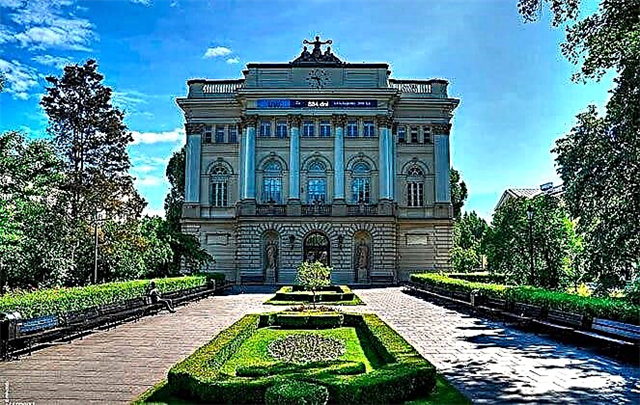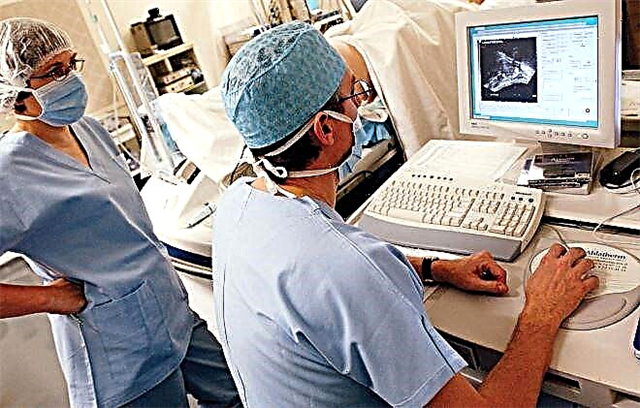Thanks to the extensive experience of doctors, the high level of equipment of clinics, the development of new medical approaches, the use of innovative drugs, the treatment of prostate cancer in Israel is becoming an increasingly popular area of medical tourism.

Causes and symptoms of the disease
The prostate is an organ of the male reproductive system, which is responsible for the production of secretions, which are a constituent part of the sperm. During an erection, the prostate closes the exit from the bladder.
With age, men experience a benign proliferation of prostate tissue (hyperplasia). A man may experience difficulty urinating, observe frequent urge to urinate, weakening of erectile function. This symptomatology is very similar to the symptoms of prostate cancer, a malignant neoplasm that develops from the epithelial cells of the prostate. The disease ranks third in the structure of cancer incidence in men.
A feature of prostate cancer is the slow growth of malignant tumors. In the initial stage, the disease proceeds without any visible symptoms. Later, the patient may experience:
- pain in the perineum;
- feeling of incomplete emptying of the bladder;
- frequent urge, an increase in the time of urination;
- weight loss;
- anemia.
Prostate cancer develops in one in 7-10 men. As a rule, the disease is diagnosed in men over 50 years of age.
The causes of the disease can be:
- genetic predisposition. The likelihood of the disease is higher if the next of kin have been diagnosed with prostate cancer;
- age;
- the influence of carcinogenic factors;
- excess weight, sedentary lifestyle;
- nutrition. The risk of the disease is increased in men who eat fatty foods. Fats provoke an increased formation of testosterone, which stimulates the growth of malignant tumor cells;
- progressive prostatic hyperplasia.
Stages of the disease
The Glisson score is used to determine the stage of prostate cancer. For assessment, a histological analysis of a biopsy specimen (material taken for a biopsy) from two sites of the prostate gland is performed; compare to what extent abnormal cells are similar to normal ones.
Each of the samples is determined from the first to the fifth grade, after which the Gleason scale is counted from 2 to 10. The lower this number, the more cancer cells look like normal cells of the prostate gland. A high Glisson score may indicate a poor prognosis of the disease.
Depending on the prevalence of the malignant tumor, the following stages of prostate cancer are distinguished:
- Stage I. The pathological process does not go beyond the prostate gland, the Glisson index is no more than 4, in a tissue sample no more than 5% of cancer cells.
- Stage II. The pathological process does not go beyond the prostate gland, the Glisson index is 5 or higher.
- Stage III. The pathological process has gone beyond the prostate gland, affects the seminal vesicles.
- Stage IV. The pathological process extends beyond the prostate tissue, affects the rectum, pelvic wall, muscles that control urination, lymph nodes, and other organs.
Diagnosis of prostate cancer in Israel
The earlier the disease is diagnosed, the higher the chance of successful treatment. Diagnosis of prostate cancer in Israel involves the following methods:
- Blood test for PSA (prostate specific antigen) - a specific substance secreted by the cells of the prostate. It is important to monitor the PSA level over time, since the increased PSA level itself is not very significant: it can increase in urological diseases, after intercourse, in older patients. If the growth rate exceeds 0.75 ng / ml per year or is more than 4 ng / ml, additional examination is required.
- Prostate biopsy. It is performed using a long thin needle under the control of an ultrasound machine, then a tissue sample is examined in a laboratory to identify malignant cells and assess the cells on the Glisson scale.
- Digital rectal examination of the prostate gland - allows you to detect deviations in the size, shape, structure of the gland.
- Cytoscopy - examination of the inner surface of the prostate using an endoscope.
- Ultrasound procedure.
If necessary, MRI (magnetic resonance imaging) or PET-CT (positron emission computed tomography) can be done.

As a rule, all diagnostic measures take no more than 3-4 days, after which a program for treating a patient with prostate cancer is developed.
Methods for the treatment of prostate cancer in Israel
When choosing methods for treating prostate cancer, doctors take into account factors such as the patient's age, test results, general health, and the prevalence of the pathological process. Depending on them, the patient can be assigned to one of three groups:
- Low risk of pathology progression. Patients may be advised to monitor the PSA level over time.
- Moderate level of risk. Patients belonging to this risk group may be prescribed surgery, radiation therapy, androgen deprivation therapy;
- High risk of pathology progression. In this case, patients may be prescribed radical prostatectomy, radiation therapy, and a long course of androgen deprivation therapy.
Treatment of prostate cancer in Israel involves the use of surgical and therapeutic methods. Surgery is focused on the use of sparing minimally invasive techniques that allow maintaining the quality of life of a man and minimizing postoperative complications. These techniques include:
- laparoscopic removal of the prostate (TURP). The operation is performed without an incision through the urethra;
- robot-assisted prostate removal (Da Vinci robot). Surgery is performed through small incisions. In addition to excellent functional results, robotic surgery provides a shorter rehabilitation period.
If it is impossible to use sparing techniques, an open surgical operation is performed.
Therapeutic treatments for prostate cancer include:
- radiation therapy - external radiation or brachytherapy, when a radiation source is introduced into the affected organ;
- chemotherapy. As a rule, the method is used for metastases in other organs;
- hormone therapy. The goal is to block the production of hormones that affect the growth of malignant neoplasms.
In addition to the listed methods, the treatment of adenoma in Israel can be performed by laser vaporization. The essence of the operation lies in the thermal effect on the prostate gland to reduce the volume of benign growth. The thermal effect is achieved through the instrument channel of the endoscope through a special light guide.
Innovative treatments for prostate cancer in Israel
In the country's clinics, relatively new methods of treatment are used in the treatment of prostate cancer, which have already shown excellent results. Thus, in the treatment of prostate cancer that metastases to bone tissue, chemotherapy with radium 223 is used. This isotope is as close as possible to calcium, the main component of bone tissue. Radium 223, entering the patient's body by intravenous injection, destroys metastases using alpha radiation.The procedure is performed only once a month.
Cryotherapy for prostate cancer involves exposure of pathological tissues to extremely cold temperatures. The procedure is performed using epidural or spinal anesthesia through incisions between the anus and the scrotum.
In Israeli clinics, a new promising method of treatment is used - immunotherapy. It involves the action of a tumor antigen on the patient's immune system, as a result of which the body produces anti-cancer T cells. According to research, the method can increase the effectiveness of complex treatment of prostate cancer by 30-40%.
HIFU-ablation is based on the action of high-frequency focused ultrasound energy, during the procedure, local heating and destruction of the tissue affected by the malignant neoplasm occurs.
Rehabilitation in Israeli clinics
The most common complication of prostate cancer surgery is erectile dysfunction. After radical prostatectomy, complications are observed in more than 60% of patients.

Rehabilitation after treatment is aimed at maintaining potency. For these purposes, Israeli clinics use:
- vacuum therapy (LOD therapy) - creating a vacuum (local negative pressure) that provides an increase and stiffness of the penis;
- low-frequency magnetotherapy;
- drug therapy;
- physiotherapy.
As a rule, the rehabilitation period begins no later than 10-14 days after the operation and is carried out under the supervision of a doctor.
Issue price
The quality of treatment in Israeli clinics can be fully attributed to one of the highest in the world: prostate cancer treatment fully complies with international standards. In addition, there is another reason why many patients choose Israel for the treatment of oncopathology. This is the cost.
Prices for treatment in Israeli clinics are lower than in popular medical institutions in Europe or America. The cost of treatment may vary depending on the complexity of the disease, the prevalence of the pathological process, the number of diagnostic procedures, the level of the clinic, the need for surgery, and the duration of rehabilitation.
Clinic selection
Below is a list of the best clinics offering prostate cancer treatment in Israel:
- clinic "Assuta";
- Sourasky Medical Center (Top Ichilov Hospital);
- clinic "Rambam";
- hospital "Hadassah;
- clinic "Herzliya Medical Center".
When contacting any of these clinics for the treatment of cancer in Israel, the patient is in the center of attention of a multidisciplinary team of leading specialists of the country: oncologists, urologists, radiologists. If necessary, consultations are held with professors: M. Inbar, H. Matskin, Y. Hen.
How to organize a trip to Israel for treatment
The organization of treatment in Israel begins with the choice of the clinic and the attending physician. To find out if you can be assisted in the chosen clinic, you need to prepare medical documentation for an absentee consultation, and for this, the extracts must be translated into Hebrew or English. The clinic's specialists calculate the preliminary cost of treatment, and if it suits the patient, you can begin to prepare for the flight.
If the patient lives in Russia or Ukraine, a visa is not required. However, it is worth remembering that after the moment of entering Israel, the passport must be valid for another six months. If the treatment period exceeds 90 days, a visa will be required.
A medical tourist arriving in Israel must present:
- health insurance policy;
- plane tickets to return to the country of residence;
- hotel booking document;
- a letter from an Israeli clinic;
- a document confirming solvency.
If you are not sure that you can manage the organization of treatment yourself, you can contact the mediators in the field of medical tourism. The company's specialists have sufficient experience and contacts necessary for the correct choice of clinic and doctors.
The mediator takes care of making an appointment for a consultation, drawing up a letter of invitation from the clinic on a letterhead, translating medical documentation, making an appointment, household issues of organizing a trip (accommodation, meals, language issues). The coordinator provides support for the patient at all stages of diagnosis and treatment.
Finally
Israeli medical centers have the latest hardware, thanks to which doctors achieve maximum results in prostate cancer treatment, and experienced and qualified medical personnel guarantee patients quality care.











